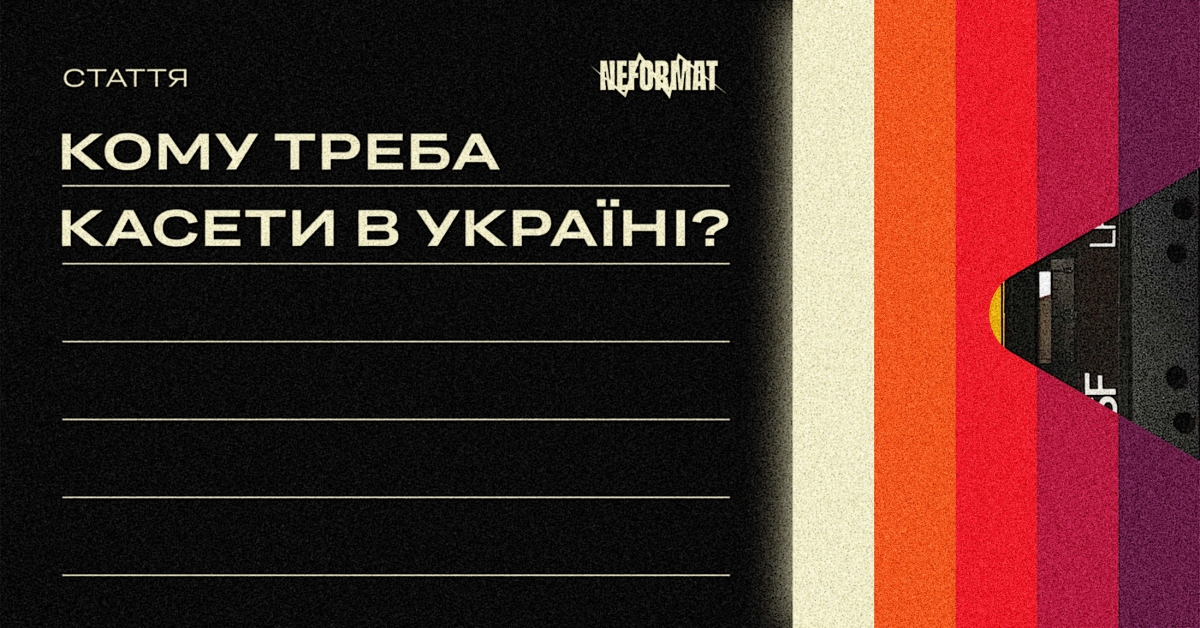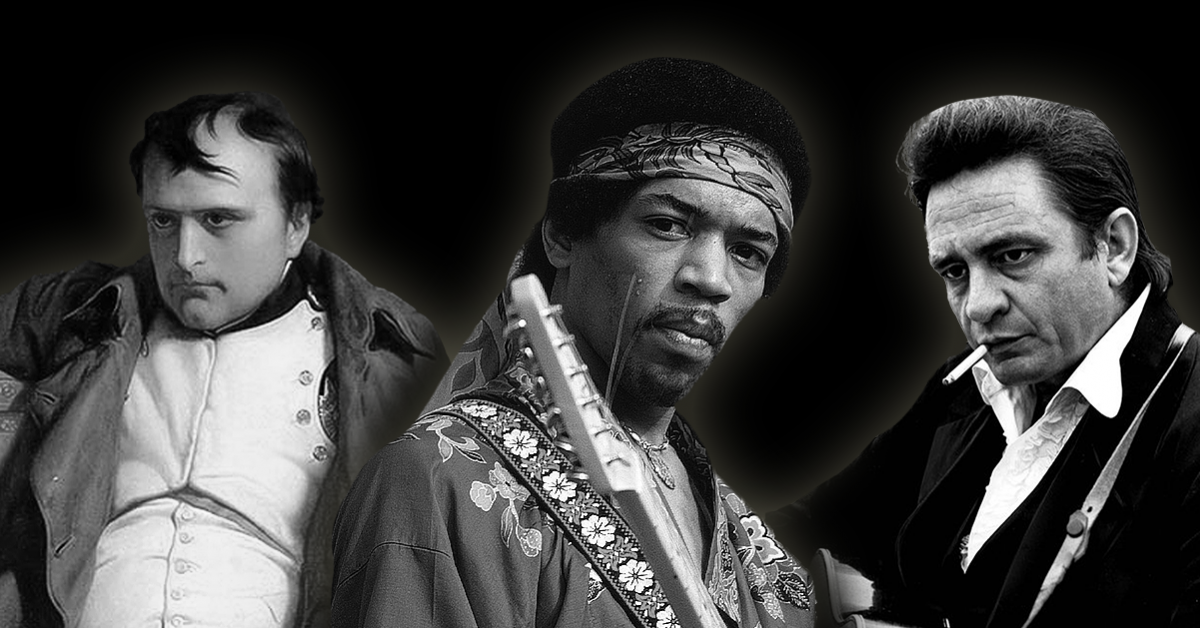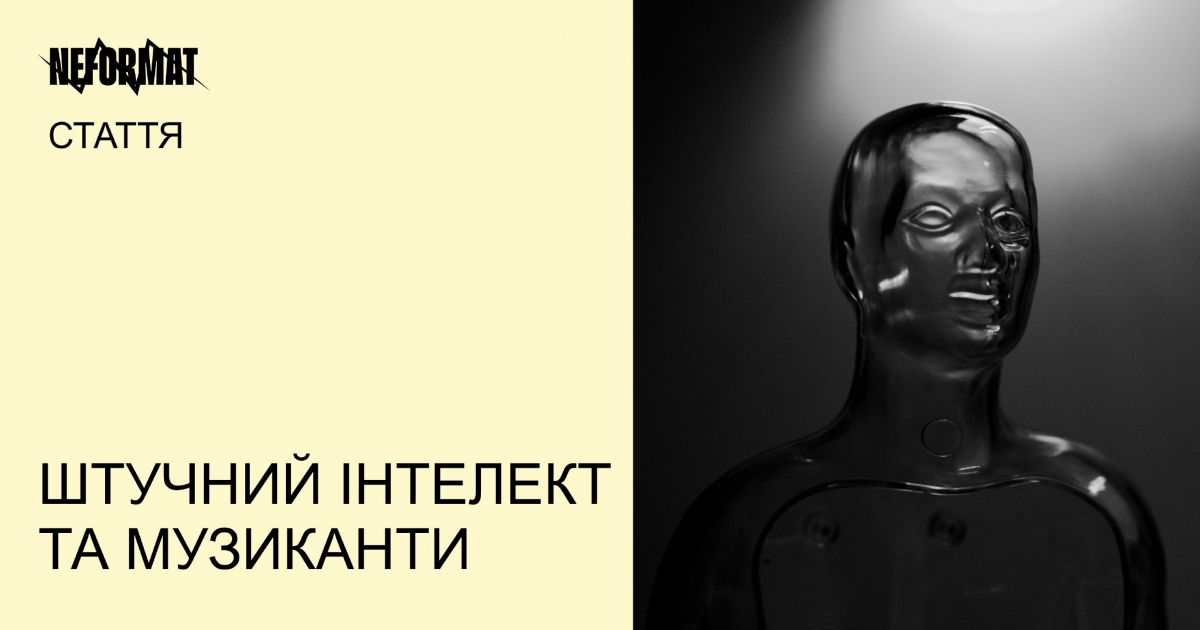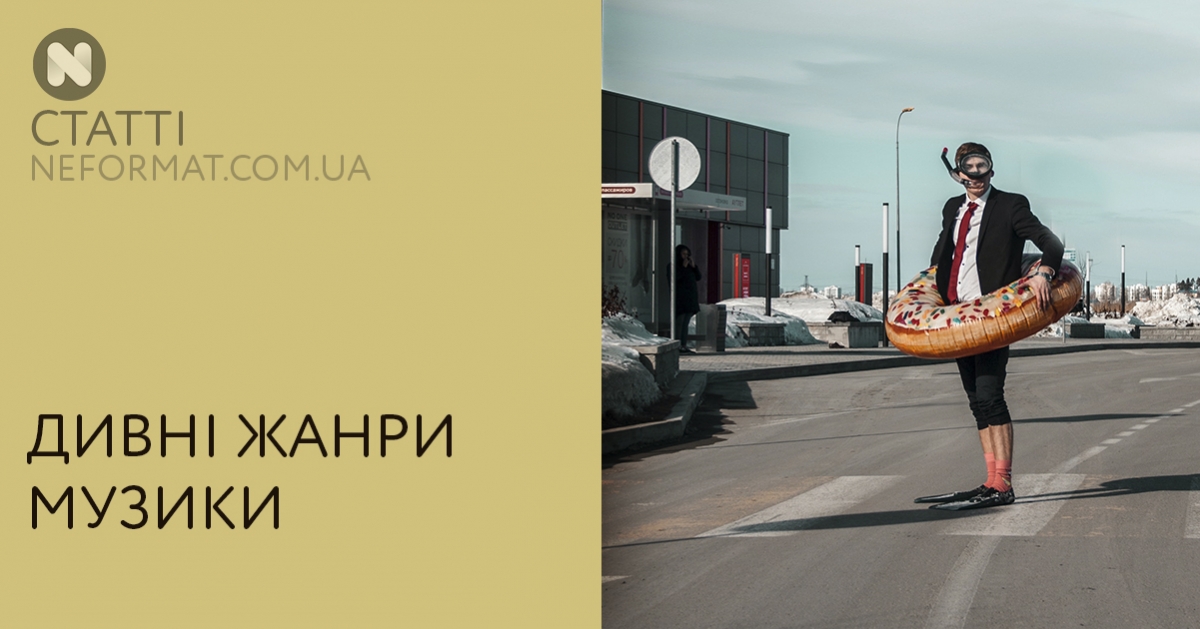TOP 10 Kyiv rock albums of the 80s-90s

Ukrainian underground has a long history dating back to the times of the Ukrainian SSR. Dozens of original bands played a variety of rock styles: from progressive to experimental. Let's go back decades ago and try to remember the Kyiv Soviet and Ukrainian bands of the 80s and 90s, who made an invaluable contribution to the development of the domestic alternative music scene.
Цукор біла смерть — Манірна музика (Tsukor Bila Smert — Manner Music)
The band "Цукор біла смерть" ("Tsukor bila smert") appeared in 1988. Svetlana Okhrimenko was its frontwoman. Before the advent of the team, she played with cellist Tamila Mazur. Then they were joined by guitarist Yevgeny Taran and pianist Alexander Kokhanovsky. The band has established itself in styles such as etno-folk, avant-folk, avant-rock, art-rock and gothic. Their difference from the others was bright female vocals, senseless but funny lyrics, as well as a mix of medieval and modern musical themes.
Collection "Манірна музика" ("Manner music") was released in 1990. It includes a total of 9 tracks from the albums: "Венера З Довгою Шиєю" ("Venus with long neck"), "Нові Пестунчики" ("New Darling") and "Рододендрони" ("Rosebays"). It perfectly demonstrates the multifacetedness of the band. Compositions of the collection refers the listener to the academic avant-garde and free jazz. Both ambient and psychedelic are present in them. Despite the fact that they are taken from different albums, each of them is the head of one novel. It is impossible to understand the track without listening to the previous one. "Манірна музика" ("Manner music") projects phantasmagoria images in the minds, evokes romantic and sometimes disturbing feelings..
Раббота ХО — Гадкие лебеди (Rabbota XO — The Ugly Ducklings)
Initially, Раббота ХО (Rabbota XO) band was called "Вавилон" ("Babylon"). It was created in 1987. It includes Sergey Popovich (guitars, vocals), Kostyantin Dovzhenko (drums), Igor Granovsky (keyboards) and Yuri Mikhailichenko (bass guitar). After performing at the Молодіжне перехрестя (Youth Intersection) festival, the band changed its name to Раббота ХО (Rabbota XO). Mikhailichenko left the band after rebrandingIn 1990, Granovsky left the band and bassist Nikolai Ignatenko came to replace him. Dovzhenko replaces drummer Dmitry Pidlutsky over time.
The album "Гадкие лебеди" ("The Ugly Ducklings") of 1995 is a recording of the band’s last official concert in the club "Барви" ("Barvy"). Sergey Popovich together with his friend Viktor Pushkar played using a playback from the recorded early drums and bass. We can say that "Гадкие лебеди" ("The Ugly Ducklings") is the result of Popovich's creative search. This album became a vivid example of Kyiv post-punk. Minimalistic effects distorted guitar riffs rested on a rectilinear rhythm. That makes you think of The Cure, The Smiths and other luminaries of the genre..
Ivanov Down — Best Urban Technical Noises
This, as I truly may say, a unique band from Kyiv saw the light in 1990 as a result of the collaboration of Aleksey "Maket" Degtyar (guitar, vocals), Aleksey Salikhov (bass guitar) and Vladimir Fedyushin (drums).
The name of the album "Best Urban Technical Noises" speaks for itself. This is noise rock at its best. The performers did not clog their heads with melodiousness and poetics. Ivanov Down became Ukrainian Throbbing Gristles and Psychic TV. Atonal chords were mixed with industrial noise extracted from electric guitars. Polyrhythmic drawings did not allow the listener to grasp the fragment, constantly destroying the usual musical picture. The sound opened like a flower, decayed, turned into chaos in order to come together again.
The performances of Ivanov Down were reminiscent of shaman rituals, Alexey Degtyar raged on stage no worse than P-Orridge. If someone wants to write a book about the "esoteric underground of Kyiv", then Ivanov Down will definitely be in it.
Воплі Відоплясова — Танці (Vopli Vidoplyasova — Dances)
Music critic Artemy Troitsky calls Воплі Відоплясова (Vopli Vіdoplyasova), or, simply, BB (VV), the best rock band of Ukraine from the 80s. The album "Танці" ("Dances"), was recorded in 1989 and released on the label Фонограф (Phonograph), got into the book "100 магнитоальбомов советского рока" ("100 Soviet Soviet Magnetic Albums") by Alexander Kushnir. And accordingly, it is worth mentioning on our list.
The band was founded by guitarist Yuri Zdorenko and bassist Alexander Pipa in 1986. Before that, the musicians played in the heavy metal band called SOS. Later, a fateful acquaintance with vocalist Oleg Skrypka took place, and then drummer Sergey Sakhno joined the trio.
In this composition in the fall of 1987, the song "Танці" ("Dances") was recorded, which became the leitmotif of the album.
With the help of it, the participants maximally expressed their punk potential, mixing the Ukrainian socialist realistic national flavor with rock'n'roll drive. All 14 songs of the album make you move your hips and laugh furiously. If the majority of Kyiv rock bands of that time reflexed and sang about their immediate experiences, then the BB (VV) preferred to bring joy to people. In general, all the best that could be snatched from punk rock and rock'n'roll was implemented in this work.
Коллежский Асессор — Колл. Асс. (Kollezhskiy Asessor — Koll. Ass.)
Writings about Коллежский Асессор (Kollezhskyi Asessor) can be long and detailed. The band has changed a large number of participants, and they have as many as 12 albums. However, we will try to briefly describe the history of the band.
Musicians Vasily Goydenko (piano), Gleb Butuzov (guitar) and Alexander Kievtsev (violin) became friends in 1981 and founded the trio called КГБ (KGB). The first results of their experiments were mocking rethinking of the work of Soviet composers. In 1987, they renamed their union to Коллежский Асессор (Kollezhskyi Asessor), which was later joined by Valik Moiseev (drums), Alexey Gaenko (guitar) and Alena Pashenkova (keyboards). Six months later, they left the band, but the drummer Alexey Rindenko came back.
In 1989, the album "Колл. Асс." ("Coll. Ass."), which, like the album "Танці" ("Dances"), Kushnir placed in a personal top. It plays the influence of the American psychedelic rock of the 60s and the British proto-punk. Guitar rhythms are replaced by lanky solos, which are interrupted in some places by minimal hooliganism. Against the background are pseudo-English songs with Ukrainian and Russian inserts. In short, everything is done in the best traditions of the Dadaists and surrealists.
The album includes twelve tracks, and opening work "Shine".
Биокорд (Biocord) — High Skies
The band Биокорд (Biocord) was created because of the composer Nikolai Bykov. The idea to create a band came to him in 1989. However, the debut performance took place in 1990 at the Йолки-палки (Yolki-palki) festival. The band included guitarist Vladimir Velichko, keyboard player Igor Moroz and drummer Alexei Shmatok. In the same year, the drummer was replaced by the drum machine, and later keyboard player also left the band. In 1991, a trio was formed with new members: drummer Stanislav Ivanov and bassist Alexander Larichkin. A year later, the final band was formed. There was a violinist Sergey Okhrimchuk and a new bass player — Vadim Simchuk.
The album "High Skies" was released in 1994 via Karavan CD. It traces the influence of King Crimson, fusion-jazz and new wave. Technically verified compositions with improvisations, filled with violin and complex drum parts, send the listener to a playful trip. The music of Биокорд (Biocord) needs to be dissected and learned for some time. It is not possible to catch the moments of transition from one part to another sometimes — there are too many details, but the speed is very high.
Godzadva — SadismySmile
After the guitarist of the Коллежский Асессор (Kollezhskyi Asessor) Gleb Butuzov left the band in 1990, he formed Godzadva togehter with with Yuri Storozhuk (played at Сверчковое Число (Grylloidea Number)). In 1991, Yuri Storozhuk left the band, which by then represented the quartet: Gleb Butuzov — guitar, Alexander Evstratenko — bass, Alexander Starovoytov — violin and Alexander Krishtapovich — drums.
Godzadva records the album "SadismySmile" in 1991. The band's music is often described as post-punk. I personally am inclined to believe that this is experimental rock. Too many lent ideas from other styles. My favorite song on the album is "French Song". On the texts of Paul Verlaine and Robert Desnos, band put an overloaded guitar, a violin, and "whipping" drums..
Necropolis — Three my lifes
In 1991, the band День умирает рано (Day dies early) turned into Necropolis. This, perhaps, was the first truly gothic-rock band in Ukraine. Slavko Gal (vocals and guitar), Kaa (guitar), DC (bass) and Stech Volchenkov (drums) played in it.
The first album, "Three my lifes", appeared on Moon records on cassettes in 1996. The guys sang in English, which, unfortunately, did not benefit them in terms of winning the public. The music is influenced by Bauhaus, Swans and Dead Can Dance.
"Three my lifes" is a melancholic journey through the darkness of Kyiv. Slow and quiet guitar melody is replaced by an overloaded speed madness. The musicians did not neglect the electronic fragments on the album, but did not overdo it, adding them to their music as pleasant accents. It is worth noting that high flashes successfully fit into the canvas of the works, without irritating the ear.
Баніта Байда — "… і Парочка Птахів" (Banita Baida — ".. and few birds")
Баніта Байда (Banita Baida) appeared on the Kyiv rock arena in 1989. It was founded by bassist Dmitry Dobry-Vecher and keyboard player Victor Nedostup. They were joined by guitarist Taras Boyko, guitarist Vitaly Klimov, drummer Nikolai Rodionov and session violinist Viktor Krisko.
The debut album "… і Парочка Птахів" ("... and Few Birds") was recorded in 1990. On the Internet, you can find information that Баніта Байда (Banita Baida) became the first to play Gothic rock. Although I am skeptical of this statement. Still, as for me, this is Ukrainian prog-rock. In the compositions, you can find blues, ballads, violin vaudevilles, neoclassic, Ukrainian folk and vocal and instrumental experiments. A complete set of the most diverse creativity, which not only demonstrates the professionalism of the participants but also shows the diversity and beauty of the history of music.
Вій — Вій (Viy — Viy)
In 1991, Dmitry Dobry-Vecher leaves Баніта Байда (Banita Baida) to establish a band named Вій (Viy) with Igor Lemeshko and Oleg Kozlov. The initial lineup included: Dmitry Dobry-Vecher (bass guitar, vocals), Igor Lemeshko (guitar), Oleg Kozlov (guitar), Yury Mezenchuk (drums), Ruslan Meleschenko (percussion, conga) and Vyacheslav Miklukho (cello).
The self-titled debut album appeared to the public on the Polish label Koka records in the summer of 1993. Although I do not like this word, but I will allow myself to use it. Album "Вій" ("Viy") is very atmospheric. This is a strange mixture of Ukrainian demonology in music and lyrics. Folk, played on ethnic and electroacoustic instruments, is successfully combined with ambient and losses.
The songs tell stories about the Cossacks, witches, the unhappy love of a rural girl, and other bespoke archetypes. You need to close your eyes in order to fully enjoy the music of the band. And then the images of psychedelia of Ukrainian myths will come to you.
We considered only one, the most wonderful and magnificent island located in the middle of the ocean of Ukrainian music. But there are still many bands that deserve to be studied. If you're interested in learning more information — you can find a lot of it in a documentary film about Kyiv music of the period of 1986-1995 "Дайте звук, будь ласка!" ("Give the sound please!").











